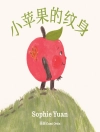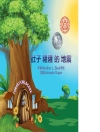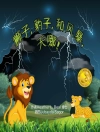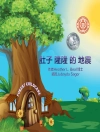In ‘Alila, Our Little Philippine Cousin, ‘ Mary Hazelton Blanchard Wade presents an enchanting narrative that introduces readers to the vivid culture of the Philippines through the eyes of a young protagonist, Alila. This charming children’s book weaves rich descriptions and engaging stories, fostering appreciation for the diverse customs and traditions of the Philippine archipelago. Wade’s literary style is characterized by her warm, accessible language and the intermingling of storytelling with cultural education, situating the book within the broader context of early 20th-century literature aimed at young readers during a time of increasing interest in global cultures. Mary Hazelton Blanchard Wade was an influential figure in children’s literature, known for her deep commitment to introducing young readers to the world beyond their immediate surroundings. An early advocate for cultural awareness and understanding, Wade’s works often reflect her passion for fostering empathy and curiosity in children. Her explorative writing in ‘Alila’ may have been inspired by the contemporary interest in the Philippines following the Spanish-American War, as American readers sought to connect with distant lands and peoples. ‘Alila, Our Little Philippine Cousin’ is an ideal read for parents and educators aiming to enrich children’s understanding of global cultures. It stands as an engaging introduction to the Philippine way of life, encouraging young minds to embrace diversity. Highly recommended for its delightful storytelling and educational value, this book is sure to inspire a lifelong interest in cultural exploration among its readers.
Giới thiệu về tác giả
Mary Hazelton Blanchard Wade, an American author born in 1860, was an influential figure in the literary circle of children’s education and cultural literature during the late 19th and early 20th centuries. Wade’s passionate embrace of cultural diversity and her commitment to children’s literature is evident in her works that sought to enlighten young minds about the wider world. ‘Alila, Our Little Philippine Cousin’ is one of the many titles in her ‘Our Little Cousin’ series which sketched vivid portrayals of various cultures through the eyes of child protagonists, thereby pioneering a unique, pedagogical approach to multiculturalism. This particular book reflects an interesting perspective on Filipino life, aiming to provide American children with insights into the customs and daily life in the Philippines. Wade was adept at storytelling, utilizing a literary style tailored to engage children while educating them on international cultures. Her work is characterized by simple yet effective prose, amiable narratives, and an overarching theme of empathy and understanding across cultural divides. Throughout her career, Wade authored more than 50 children’s books, playing a pivotal role in the genre of cultural and geographical education for the youth. Mary Hazelton Blanchard Wade passed away in 1936, but her contributions to children’s literature continue to be acknowledged and her books cherished for their educational value and emphasis on global citizenship.












